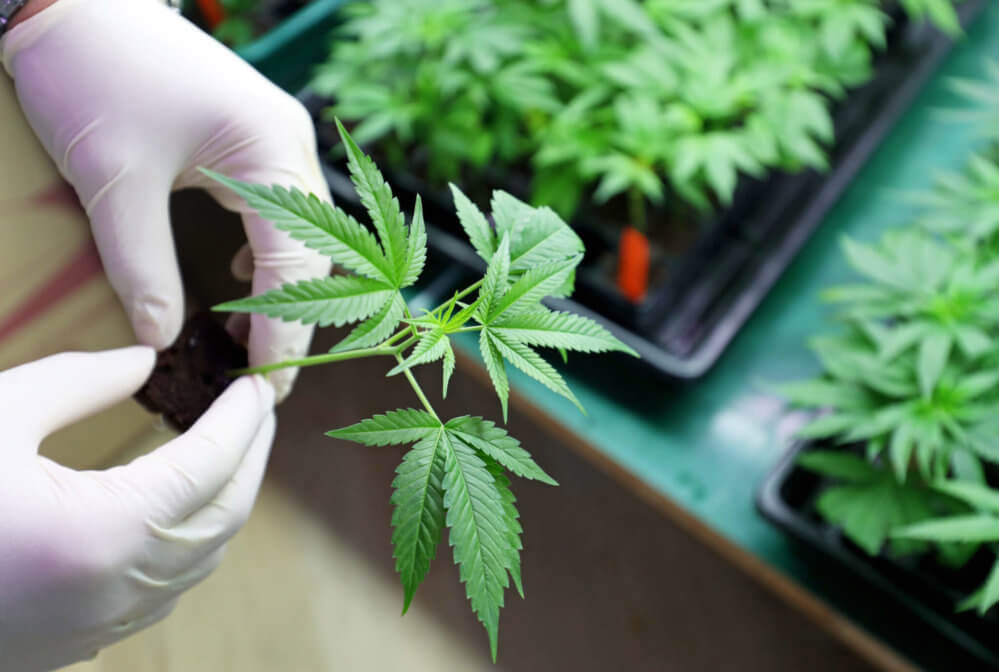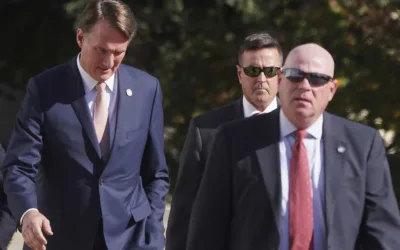
Governor plans to introduce bills to fully legalize marijuana in 2021 General Assembly session.
RICHMOND- It’s currently legal for adults to use marijuana in 15 U.S. states. And, as soon as next year, Virginia might join that list. On Monday, Gov. Ralph Northam announced plans to legalize marijuana in next year’s General Assembly session.
“It’s time to legalize marijuana in Virginia,” Northam said in a statement. “Our Commonwealth has an opportunity to be the first state in the South to take this step, and we will lead with a focus on equity, public health, and public safety. I look forward to working with the General Assembly to get this right.”
If passed, these laws would do more than make some smokers happy. It could address the long history of racial discrimination happening in this state. Gov. Northam’s announcement comes right on the heels of a new study from the Joint Legislative Audit and Review Commission (JLARC).
According to their study, Black Virginians are arrested and convicted of marijuana-related offenses 3.5 times the rate of whites. However, in order to fix this problem, legislators must change Virginia’s current laws.
“Virginia could establish a well regulated, fully private commercial market where licensed businesses cultivate, process, distribute and sell marijuana,” said legislative analyst Mark Gribbin.
But, markets like this aren’t created overnight. It’s going to take more than Northam signing a bill into law. Thankfully, the JLARC outlined what the government needs to do during a subcommittee meeting on Monday.
What Will These Laws Need to Address?
In his statement, Northam said he will address five main principles while creating the bills- equity, public health, protections for young people, the Virginia Indoor Clean Air Act, and data collection. Without taking these principles into account, these laws will not work.
The commission recommends the following safeguards in order to regulate marijuana use, similarly to that alcohol use:
- Limit the possession to 1 oz of marijuana flower
- Set the minimum age to 21 years old
- Prohibit use in public spaces (like sidewalks, restaurants, and parks)
- Prohibit use in vehicles
- Establish “open container” marijuana laws
They also recommend keeping Virginia’s current laws against driving under the effects of marijuana. While nothing has been set in stone, Northam agrees similar regulations need to be set up if marijuana is going to be legalized.
If handled properly, Virginia could see up to $300 million in marijuana sales tax a year for state and local governments, according to the JLARC. However, it could take two years or more to set this market up and would cost $8 to $20 million up front.
Some places in Virginia would benefit more than others. Based on interest, the study estimates most localities in Northern Virginia and the Tidewater would take part in a commercial market. On the other hand, Southwest and Southern Virginia locations didn’t show as much interest.
But, this more than about bringing more money into Virginia’s economy. Legalizing marijuana could be the first step in tackling a much larger issue in Virginia’s criminal justice system.
RELATED: After Multiple Delays, Virginia’s First Marijuana Dispensary Opens Up
Racial Disparities in Marijuana Arrests
Most marijuana arrests are from use, according to Gribbin. Even without legal access, JLARC’s data shows marijuana use spiked over the last decade. Black and white, adults are using it more often.
And, both races tend to use the substance at similar rates. In 2019, about 6% of white people admitted to using marijuana, compared to 7% of white people. But, officers tend to arrest more Black people on average.
“White Virginians use marijuana at similar rates to Black Virginians,” said Gribbin. “So the difference cannot be explained by differences in use.”
Now, Northam’s administration has done some work on this issue. Earlier this year, the governor decriminalized marijuana in the state, eliminating any jail time and bringing the penalty down from $500 to $25. But, Virginia still has a long way to go. What about people who were charged with marijuana related offenses before 2020? The JLARC recommends “expungement” or sealing someone’s arrest record.
Once the legal system “expunges” someone’s prior marijuana charges, no one would be able to see. Why does that matter? Well, in this country, prior charges can prevent people from getting jobs and applying for loans. Getting rid of these prior charges could help 120,000 Virginians lead more functional lives.
There were a few expungement bills during this year’s General Assembly session. But, the JLARC’s method is very different. Unlike other bills, JLARC’s recommends local court clerks remove the physical files of someone’s arrests, as well as the electronic ones. They also suggest keeping the expungement related to marijuana related charges.
RELATED: We Heard Your Questions on Virginia’s Marijuana Policies
Taking Steps Forward
Virginia Senator and candidate for governor Jennifer McClellan sees the study’s recommendations and Northam’s announcement as positive steps. She was the person who originally asked the JLARC to study what it means to legalize marijuana, filing a bill in the state Senate back in January. She promised to file more bills in the coming session to build on this progress.
“This study paves the way for action on marijuana legalization that not only redresses the disproportionate impact of prohibition, but ensures Black and brown Virginians have an opportunity to benefit from the new commercial market,” McClellan said. “During the 2021 legislative session, I will work to ensure the social equity components of marijuana legalization are enacted.”
The one challenge for McClellan will be time. Virginia Republicans announced Monday that they will refuse to support any extension to the session that begins in January. In odd-numbered years, the session starts out with a 30-day limit. Any extension requires a two-thirds majority vote, which means members of both parties would have to support it. Without that extension, the Democratic majority will have 30 days to file bills, get them through committee and take a vote.
Arianna Coghill is a content producer for the Dogwood. You can reach her at [email protected].

Here’s everything you need to know about this month’s Mercury retrograde
Does everything in your life feel a little more chaotic than usual? Or do you feel like misunderstandings are cropping up more frequently than they...

VIDEO: Check out Dogwood’s new merch line
Big news, Virginia! We've officially launched our Dogwood merch line 🎉 This year, we celebrate 5 years of bringing you Virginia news you can use....

VIDEO: Your support matters!
Your support matters! Donate today. @vadogwoodnews Your support matters! Visit our link in bio to donate today. #virginianews #virginia #community...

Op-Ed: Virginia’s new Democratic majorities pass key bills to improve your lives, but will Youngkin sign them?
The 2024 Virginia General Assembly regular session has wrapped up. It was a peculiar session from the outset, with Democratic majorities in the...

From the state rock to the state flower, here’s how Virginia got its symbols
Have you ever wondered why the Dogwood is the state flower? Or how the cardinal became the state bird? We’re here to answer those questions and more...

VIDEO: Second-gentleman Douglas Emhoff gives speech on reproductive freedom
Second gentleman, Douglas Emhoff touched on reproductive freedom not only being a woman's issue but "an everyone's issue" during the Biden-Harris...




